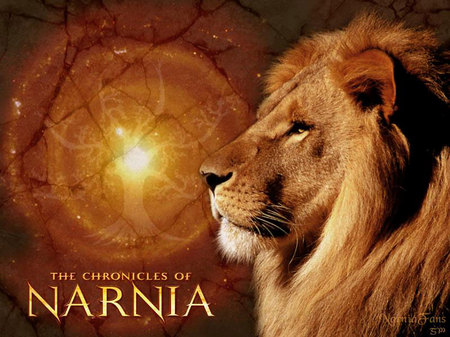Christian subtexts
Thu. December 22, 2005Categories: Abstract Dynamics

Zoe Williams is right to notice an odd trend in the responses to the recent Narnia film. ‘There seems to be no discussion of The Lion, the Witch and the Wardrobe,’ she wrote last week, ‘that isn’t prefixed with “Besides the dodgy Christian subtext” or “Dodgy religious allegory aside”‘. The merits of the film aren’t at issue here (I haven’t seen it, but hold out little hope for its quality); what is interesting is the way in which Christianity has come to attain a status as low as that of Nazism. (Or perhaps Christianity is even worse than Nazism – so you might conclude, given that not every reviewer of Lord of the Rings felt it incumbent upon themselves to refer to its fascist subtext.) Yet, as Williams also noted, it isn’t clear what the supposed problem with Narnia’s Christian references is: plagiarism? potential for appropriation by hard right fundamentalists? I wonder if the same judgement would be made about Paradise Lost? (‘OK except for the dodgy Christian references.’)
The denigration of Narnia’s Christianity is all of a piece with the multiculturalist attack on Christmas (the right wing decrying of which is now an established part of yuletide tradition in Britain). This year’s big story was the withdrawal of funding for a Christmas choral service on the grounds that it was ‘too Christian’. What is odd about such moves is that they fundamentally misconceive the already non-religious character of Christmas. Zizek, indeed, has cited Christmas as the paradigmatic form of disavowed belief. ‘”I do not really believe in it, it is just part of my culture” effectively seems to be the predominant mode of the disavowed/displaced belief characteristic of our times: what is a “cultural life-style” if not the fact that, although we do not believe in Santa Claus, there is a Christmas tree in every house and even in public places every December? Perhaps, then, “culture” is the name for all those things we practice without really believing in them, without “taking them seriously.”‘ (Perhaps what is ‘dodgy’ about Lewis is the vulgarity of his ‘real’ belief; by contrast, a postmodern syncretic hackjob like Harry Potter is perfectly acceptable since there is no question of Rowling or anybody else ‘really believing’ in sorcery.)
Even as it genuflects towards the supposed ‘feelings’ of those Others who really believe, who take their religion seriously, this kind of multi-culturalism actually trades on racist imagery. The rationale for ‘Winterval’ instead of Christmas, for ‘inclusive’ celebrations instead of carols, is an appeal to the ‘feelings’ of non-Christian groups which will supposedly be ‘offended’ by overt expressions of Christian faith. Those who really believe, we are invited to think, are as intolerant as ‘we’ are tolerant. Tolerance turns out to be the privilege of the powerful. The situation is asymmetrical; ‘we’ demonstrate our tolerance by allowing Them to give full reign to their intolerance. They live in a state of hair-trigger perpetual readiness-to-be-offended which has to be appeased (lest, presumably, they express this offence as a violent savagery which is implicitly attributed to Them in the multi-culturalist imaginary.)
Yet all of this misses the fact that the danger Christmas poses to ‘real belief’ comes not from any supposed exclusivity, but from its undemanding inclusivity. Christianity has become nothing more than a subtext in Christmas itself, a festival that everyone knows was appropriated from paganism. Vapid, cored-out feelgood sentiments that no-one could possibly disagree with: that is what religion becomes when it is no longer a matter of belief but cultural lifestyle.
__________________________________________________________________
Marcello’s end of year round-up is the perfect antidote to the dismal Observer Music Monthly run-down (which, to its credit, at least kept Kaiser Chiefs at 62 and Coldplay at 18 – 18th best album of the year, eh, talk about damning with faint praise). I wholeheartedly concur with what Marcello said about The Young Gods; that they were a missed opportunity, denizens of an alternative late 80s in which modernism never ended. When I saw them a few weeks ago at the truly bleak Barfly (a toilet in Camden), I thought that there is absolutely no reason why the Young Gods weren’t stadium-massive. They are built for stadiums, their sculpted crash chords designed to send shudders through amphitheatres. With their heightened elemental mother-sky widescreen imagery, their rock rebuilt as sampler-simulated Mount Rushmore granite vastness, they have everything claimed of U2, but with the considerable advantage of not having Bono spoiling the panorama. In any just universe, U2 would be playing the Barfly and the Young Gods would be playing yet another worldwide tour to thousands. But we are trapped in a universe in which Trad and Real Ale always triumph… Or so it seems at the moment.
_________________________________________________________________
I’m going to Wales for Christmas, where I will only have intermittment net access. So posts will be sporadic for a while. I hope to get at least one post up before the weekend, but apologies if I don’t manage it.